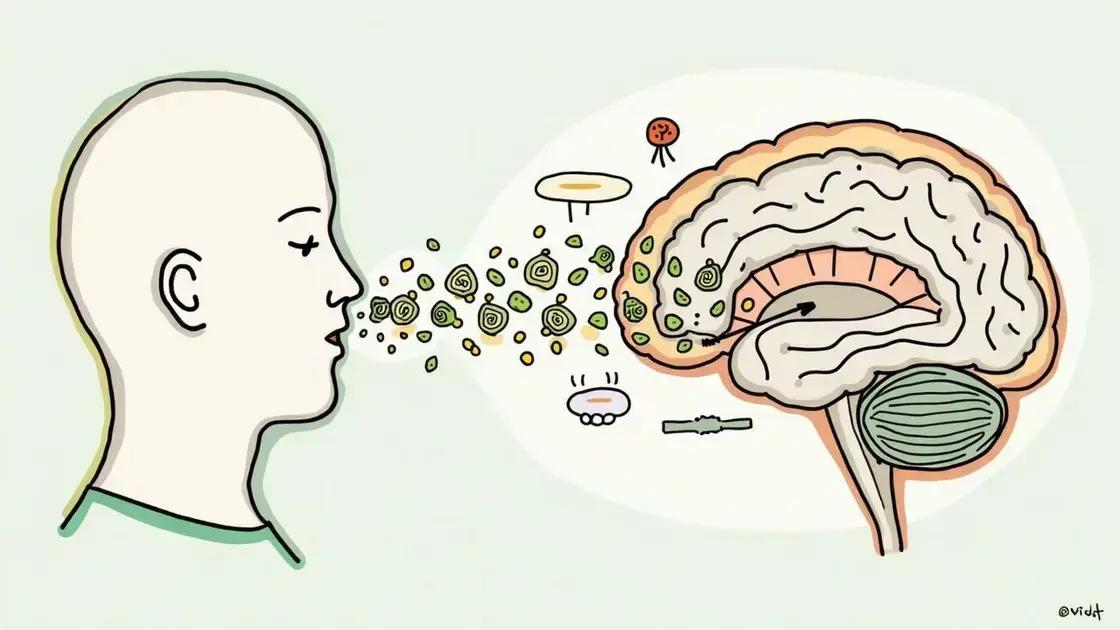The Smell Trick is an effective technique that uses specific scents to improve focus, reduce stress, and enhance creativity. Supported by scientific research, this method can benefit various individuals, including students, professionals, and artists, by creating positive emotional responses and influencing behavior.
The question “Does the Smell Trick work for everyone?” has intrigued many. As we explore the nuances of this phenomenon, you’ll uncover fascinating insights into how different individuals respond to scents. In this article, we will go in-depth into the Smell Trick, its benefits, the science behind it, and share real-life experiences. By the end, you’ll understand why some people find success with this method while others do not.
Understanding the Smell Trick

Understanding the Smell Trick
The Smell Trick is a fascinating concept that revolves around the idea that scents can evoke strong reactions and memories. Many have experienced the power of a particular smell bringing back vivid memories or feelings. For example, the scent of fresh-baked cookies might remind someone of warm family gatherings.
What is the Smell Trick?
The Smell Trick involves using specific scents to influence moods or behaviors. This can include anything from enhancing focus while studying to calming nerves before a big presentation. Understanding how different scents affect people is key to using the Smell Trick effectively.
The Role of Memory
One reason the Smell Trick works for many is because of its connection to memory. Scents are linked to the limbic system in our brains, which is responsible for emotions and memories. For instance, the smell of pine trees might remind someone of a childhood holiday spent in the mountains.
Common Scents Used
There are several common scents that people use to tap into the Smell Trick. Some popular scents include:
- Lavender: Known for its calming effects, lavender is often used to reduce anxiety and promote relaxation.
- Peppermint: This scent can enhance focus and concentration, making it a favorite among students and workers.
- Citrus: Scents like lemon and orange can uplift mood and increase energy, perfect for those need a little boost.
Understanding these scents’ influence can help individuals choose the right scents for their specific needs and situations.
Who Can Benefit from the Smell Trick?

Who Can Benefit from the Smell Trick?
The Smell Trick can be beneficial to various groups of people. Whether you are looking for a way to improve focus, reduce stress, or enhance creativity, this method might be for you.
Students and Learners
Students often struggle with concentration and retaining information. Using certain scents, like mint or lemon, can help enhance their focus during study sessions. Scents create a stimulating environment that may aid in learning.
Professionals in High-Stress Jobs
People working in high-stress environments can benefit significantly from the Smell Trick. Calming scents, such as lavender and chamomile, can help reduce anxiety and promote relaxation. This can lead to increased productivity and better overall job performance.
Individuals Practicing Mindfulness or Meditation
For those who practice mindfulness or meditation, aromatherapy can enhance the experience. Scents such as sandalwood or frankincense often accompany meditation. They can help set the mood and deepen relaxation during practice.
Creative Individuals
Artists and writers may also find inspiration through scents. Citrus and floral aromas can awaken creativity and encourage new ideas. By surrounding themselves with these uplifting smells, they can create a productive and inspiring workspace.
Overall, the Smell Trick offers various benefits for people from different walks of life, making it a versatile tool for well-being and productivity.
Scientific Explanation Behind the Smell Trick

Scientific Explanation Behind the Smell Trick
The Smell Trick is supported by science, particularly through our understanding of how scents interact with our brains and emotions. Scents are molecules that enter our noses and bind to olfactory receptors.
How Our Nose Works
When we inhale, tiny odor molecules travel into our nasal cavity. There, they interact with olfactory receptors. These receptors send signals directly to the brain’s olfactory bulb. This part of the brain is very close to the emotional center, known as the limbic system.
The Limbic System and Emotions
The limbic system is important for processing emotions and memories. Because scents can trigger memories and feelings, they can influence our mood and behavior. For instance, the smell of fresh bread might make someone feel happy and nostalgic.
Studies on Scents and Behavior
Research has shown that different scents can affect our brain chemistry. For example, studies indicate that lavender can lower stress levels while peppermint can increase alertness. This shows how the Smell Trick works for many people, creating positive changes in their behavior or feelings.
Aromatherapy and Its Impact
Aromatherapy uses scents for therapeutic purposes. It often combines essential oils to promote physical and emotional health. Scientific studies support the effectiveness of aromatherapy in reducing pain and anxiety, further validating the power of the Smell Trick.
The scientific link between scent, emotion, and memory helps explain why the Smell Trick can work for many individuals, making it a valuable tool for improving mood and focus.
Real-Life Experiences with the Smell Trick

Real-Life Experiences with the Smell Trick
Many people have shared their personal stories about the Smell Trick and its impact on their lives. These real-life experiences highlight how scents can play a significant role in everyday situations.
A Student’s Story
One college student discovered that using peppermint oil while studying helped improve concentration. Whenever they felt distracted, they would inhale the scent. This simple trick became a part of their study routine, making it easier to focus during long study sessions.
A Busy Professional
A professional working in a fast-paced environment often felt stressed out. They decided to use lavender essential oil in their office. By placing a small diffuser on their desk, they found that the calming scent helped them manage anxiety throughout the workday, improving their overall productivity.
A Mother’s Approach
A mother used citrus scents to create an energetic atmosphere at home. Whenever her children felt sluggish after school, she would diffuse orange or lemon oil. The uplifting aroma had a noticeable effect, lifting their spirits and encouraging them to tackle homework with more enthusiasm.
A Creative Mind
An artist shared how specific scents enhanced their creative process. By using floral scents like jasmine, they found inspiration flowed more freely. The pleasant aroma not only elevated their mood but also sparked new ideas for their artwork. This connection demonstrated how the Smell Trick can influence creativity.
These experiences reveal how individuals across various backgrounds have successfully utilized the Smell Trick in their lives. By incorporating scents into their routines, they enhanced focus, reduced stress, and sparked creativity.
In Conclusion: The Power of the Smell Trick
The Smell Trick offers intriguing benefits to various individuals, from students to professionals, and even artists. By harnessing the power of scents, many have found improvements in focus, creativity, and emotional well-being.
Scientific evidence supports the connection between smells and our emotions, highlighting how different scents can evoke memories and feelings. Real-life experiences further demonstrate the practicality of the Smell Trick in everyday situations.
Whether you’re looking to enhance productivity at work or spark creativity in your artistic endeavors, understanding and applying the Smell Trick could be a valuable tool. Explore the right scents for your needs and discover how they can positively impact your life.
Don’t underestimate the power of aroma—it’s more than just smell; it’s a pathway to improved focus, relaxation, and creativity.
FAQ – Frequently Asked Questions about the Smell Trick
What is the Smell Trick?
The Smell Trick involves using specific scents to influence moods, behaviors, and mental states, enhancing focus and relaxation.
Who can benefit from the Smell Trick?
Students, professionals, artists, and anyone looking to improve focus or reduce stress can benefit from the Smell Trick.
Are there specific scents that are most effective?
Yes, scents like peppermint for focus, lavender for relaxation, and citrus for energy are commonly effective.
How does scent affect our emotions?
Scents interact with the brain’s olfactory system, which is closely tied to the limbic system that processes emotions and memories.
Can the Smell Trick help with anxiety and stress?
Absolutely, calming scents like lavender and chamomile have been shown to reduce anxiety and promote relaxation.
Is the Smell Trick scientifically backed?
Yes, numerous studies highlight the connection between specific scents and their effects on mood and behavior.













